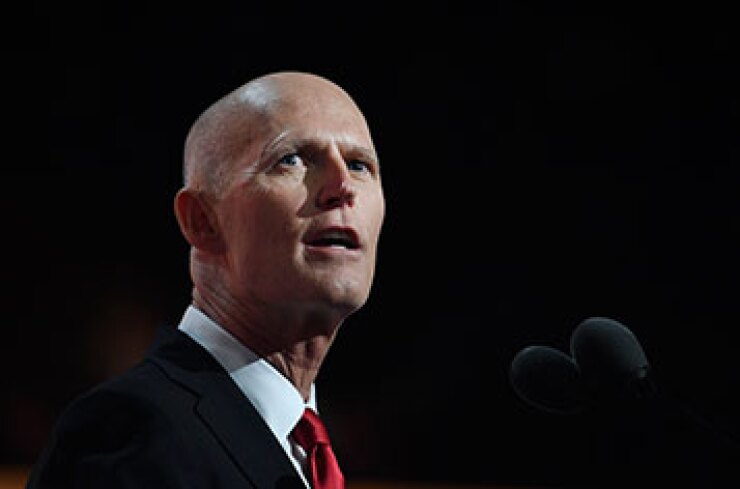
BRADENTON, Fla. – With Florida facing a structural budget imbalance, lawmakers quickly advanced a new gambling bill they believe would bring millions in new revenue the state.
With no debate during a pre-session hearing, the Senate Regulated Industries Committee on Wednesday unanimously passed a sweeping gambling bill proposed by Sen. Bill Galvano, R-Bradenton.
Unlike recent years when lawmakers could not reach a compromise on a new compact with the Seminole Indian Tribe over its seven casinos, Galvano told the committee that his bill will resolve ongoing litigation with the tribe and establish "predictability for our state budget."
The bill has the potential to bring millions to the state general revenue fund and also to local governments.
"Gaming is a multi-billion-dollar industry," Galvano said, adding that he hopes the bill will be approved early in the legislative session that starts March 7.
Galvano sits on the Appropriations Committee, the next stop for his bill.
The extra revenue from gambling will come in handy with the state facing structural imbalances over the next three years because of record spending in prior years, tax cuts and rising Medicaid and education costs, according to state economists.
Problems will begin in fiscal 2018 when state is projected to end the year with a surplus of only $7.5 million or 0.02% percent of general revenues.
To pay for traditional budgeted items and recurring tax cuts, the economists said that the next budget – without any adjustments by lawmakers – would require using $24.4 million in non-recurring revenue to fund recurring expenditures.
On Wednesday, Gov. Rick Scott began a tour of the state to announce that his budget for fiscal 2018, which has not been released, will include $618 million in tax cuts.
Some $454 million of his proposal would go to reduce the tax on commercial leases by 25% in 2018, and would be an annual recurring hit to the state budget, assuming legislators agree when they craft their own version of the budget.
Scott is also proposing four sales tax holidays estimated to cost the state $98 million. Those holidays would provide 10 tax-free shopping days for school needs, nine tax-free shopping days for disaster preparedness items, three days of tax-free shopping for veterans, and a one-day camping and fishing sales tax holiday.
Since being in office the past six years, Scott said the state has cut more than $6.5 billion in taxes.
Most of the tax cuts were business-related.
"When we cut taxes, it helps businesses create jobs – jobs that ultimately help the poorest, most disadvantaged families in our state," he said.
Scott did not say where he would cut the budget to absorb the new tax cuts.
Florida has no state income tax and relies primarily on state sales taxes and fees to support the general fund.





